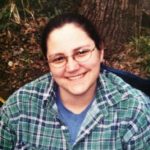Mental Health: Holistic Recovery and the Role of Community
by C J Wood
Often when people think of treating mental health disorders they think of medicine and therapy. These two things are only part of what is needed for someone to thrive again. Just as with any other disease, recovery includes caring for the body, mind, and spirit. This works best in the context of community.
As someone who has a mental health disorder, the first step towards instability is losing my routine. Going to bed and waking up at the same time, eating healthy meals at regularly scheduled times, and taking my medication on a regular basis all impact my ability to cope with my symptoms. Friends and family can support these habits by understanding their importance. Not giving a person a hard time when they won’t stay out late or eating healthy meals with a person helps them not feel isolated.
Being a gatekeeper is a crucial role for friends and family to play. Being a gatekeeper often looks like a bodyguard. For a spouse, it can mean allowing your partner to take a nap or excusing yourselves from a social function. Friends can also help a friend exit overwhelming situations like needing to leave in the middle of a movie or in the middle of grocery shopping. Being a gatekeeper ultimately means being present and aware. It does not mean making the person a project.
I do not know how I would have made it through a very rough patch without my friend Megan. She was a gatekeeper for me but she also allowed me to reciprocate by supporting her and being present in whatever capacity I could. Often that meant helping put her kids to bed and reading bedtime stories to them. She also knew not to ask me, “Have you been taking your medication?” She identified symptoms and asked about them. She asked open ended questions like “How are you feeling today?” Or stated an observation like “You seem a bit anxious today? What’s going on?” She knew I could have a bad day unrelated to my mental health disorder. Megan also pointed out when I was doing well. I had dinner with her family at least once a week. She offered me community and friendship.
As a person who shared my faith, Megan gave me the space and grace to not attend church. She understood how stress inducing this could be. She did cultivate and encourage opportunities that connected me to my faith community and God outside traditional rituals and expectations.
Community is essential to holistic recovery. It provides the scaffolding of grace, hope, and encouragement to support the other aspects of recovery. It celebrates what a person can do no matter how small like getting out of bed and brushing your teeth. It prevents isolation and can lessen stigma. No one can recover alone.
 C J Wood lives in San Antonio, TX, where she works as a Resident Chaplain for the Baptist Health System. She lived in Waco while attending Truett Seminary where she earned her MDiv. CJ then went on to teach 3rd grade for Waco ISD before moving to India to work as an education consultant. Most recently CJ worked for AVANCE-Waco. She is currently working on her DMin in Formational Counseling from Ashland Theological Seminary in Ohio. She is the proud aunt of 2 nieces and 5 god children. CJ loves her Lhasa Apso Jasmine Rose who she brought back from India.
C J Wood lives in San Antonio, TX, where she works as a Resident Chaplain for the Baptist Health System. She lived in Waco while attending Truett Seminary where she earned her MDiv. CJ then went on to teach 3rd grade for Waco ISD before moving to India to work as an education consultant. Most recently CJ worked for AVANCE-Waco. She is currently working on her DMin in Formational Counseling from Ashland Theological Seminary in Ohio. She is the proud aunt of 2 nieces and 5 god children. CJ loves her Lhasa Apso Jasmine Rose who she brought back from India.
The Act Locally Waco blog publishes posts with a connection to these aspirations for Waco. If you are interested in writing for the Act Locally Waco Blog, please email [email protected] for more information
